In times of loss, finding the right words to express sympathy can feel daunting, especially when addressing the unique challenges faced by military families. It's essential to convey genuine support and understanding, recognizing the sacrifices made by both the service member and their loved ones. Crafting a heartfelt letter can provide comfort and connection during such a difficult time. Join us as we explore thoughtful letter templates that serve this purpose beautifully.
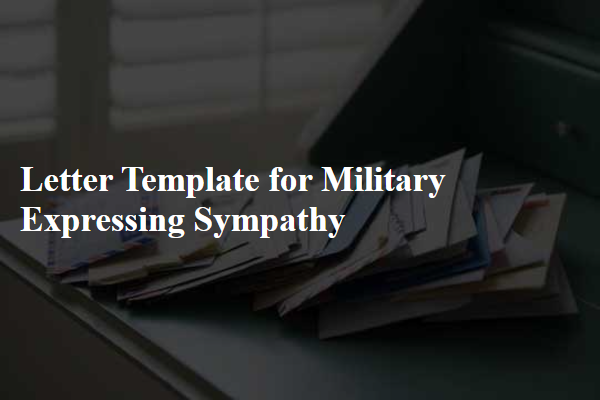
Tone of Respect and Honor
The esteemed military personnel often face tremendous challenges, experiencing both victories and profound losses. Expressing sympathy for fallen heroes or their families demands utmost respect and honor. Acknowledging the sacrifices made while highlighting the significance of their service is crucial. Each gesture of support and every word of condolence conveys the highest level of appreciation for those who protect freedom, exemplifying the unwavering commitment to uphold the values they fought for. It serves as a reminder that their legacy endures, inspiring future generations to serve with equal bravery and dedication.
Personalization and Details
A military letter expressing sympathy typically acknowledges the loss of a service member or the hardships faced by military families. It often includes profound personal sentiments and details regarding the deceased, such as service branch, rank, and specific contributions to missions or units. It may reference the location of service, such as deployments to Iraq or Afghanistan, and reflect on shared experiences or the values upheld by the fallen soldier. Additionally, it can extend support to the family with expressions of honor and remembrance, emphasizing the sacrifice made in the line of duty. Such letters hold significant emotional weight, providing comfort and acknowledging the profound impact on the community and nation.
Offer of Support and Assistance
Amidst the sacrifices made by military personnel and their families during service, waves of profound loss and grief often ripple through the community. Families grapple with the challenges of sudden absence, adjusting to new realities without their loved ones who bravely served in places such as Afghanistan or Iraq. Support programs established by organizations, including the American Red Cross and USO, aim to provide emotional relief and practical assistance during these trying times. Initiatives like outreach services and counseling help foster resilience while connecting individuals to resources. Community members are encouraged to offer acts of kindness, such as home-cooked meals or connecting bereaved families with veteran support networks. Understanding and compassion in these moments exemplify unity and honor for those who have served.
Acknowledgment of Sacrifice
The acknowledgement of sacrifice is a poignant aspect of military service. Members of the armed forces, such as those serving in the United States Army or Navy, often endure significant hardships. Deployment to combat zones, like Afghanistan or Iraq, can result in emotional and physical challenges, including loss of life or serious injuries sustained during engagements. Military families, facing prolonged separations, experience their own trials, with children adapting to a parent's absence and partners managing household responsibilities alone. Recognition of these sacrifices is essential, conveying gratitude and support for their unwavering commitment to duty and country. Events such as Memorial Day or Veterans Day serve as reminders of this honor and respect, acknowledging the countless sacrifices made for national security and freedom.
Expression of Condolences and Sympathy
The impact of military service on families can be profound, especially during times of loss. Soldiers serve in high-stress environments, often leading to tragic outcomes, particularly in regions like Afghanistan and Iraq. The sacrifices made by military personnel, including members of the U.S. Army, Navy, Marine Corps, and Air Force, can leave deep emotional scars on both them and their families. Support organizations, such as the American Red Cross and Gold Star Families, provide essential resources to help families cope with grief. Crafting a letter of condolence requires sensitivity, acknowledging the bravery of the service member and the heartache of their loved ones, which often resonates deeply, providing comfort during a trying time. Providing ongoing support and resources ensures families feel connected and honored in their loss.

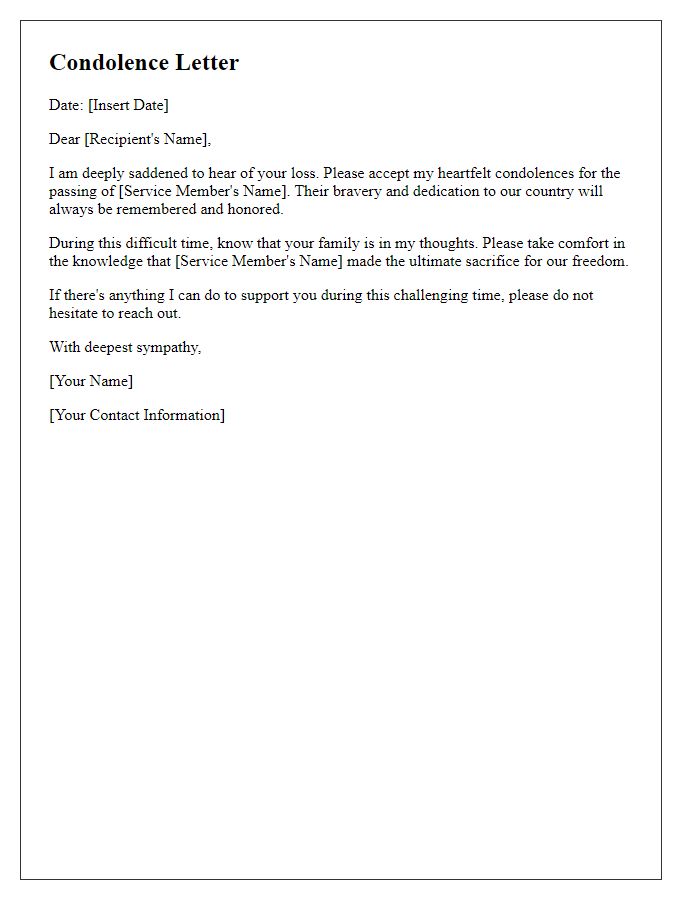
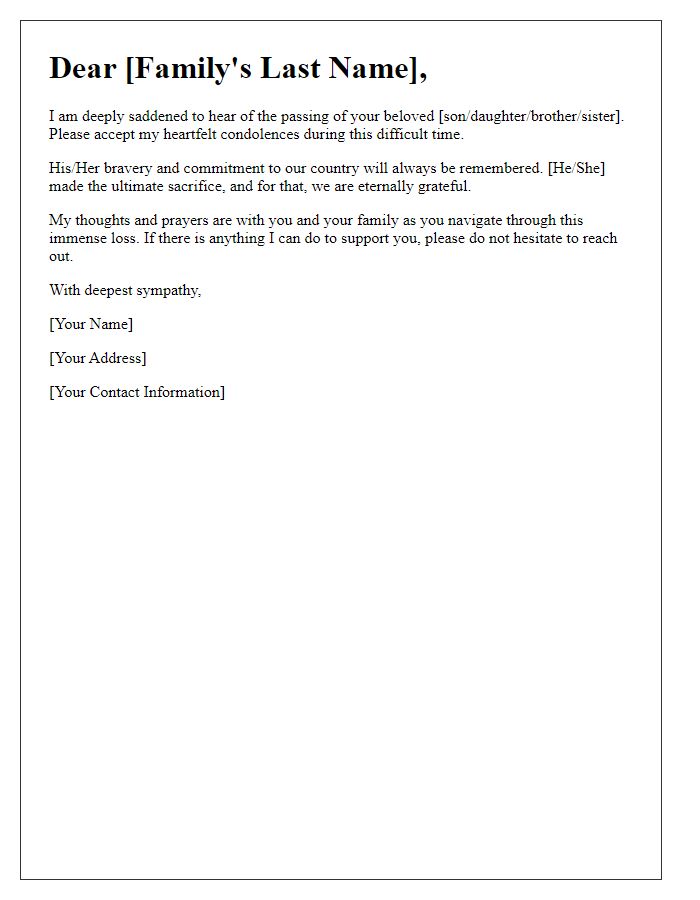
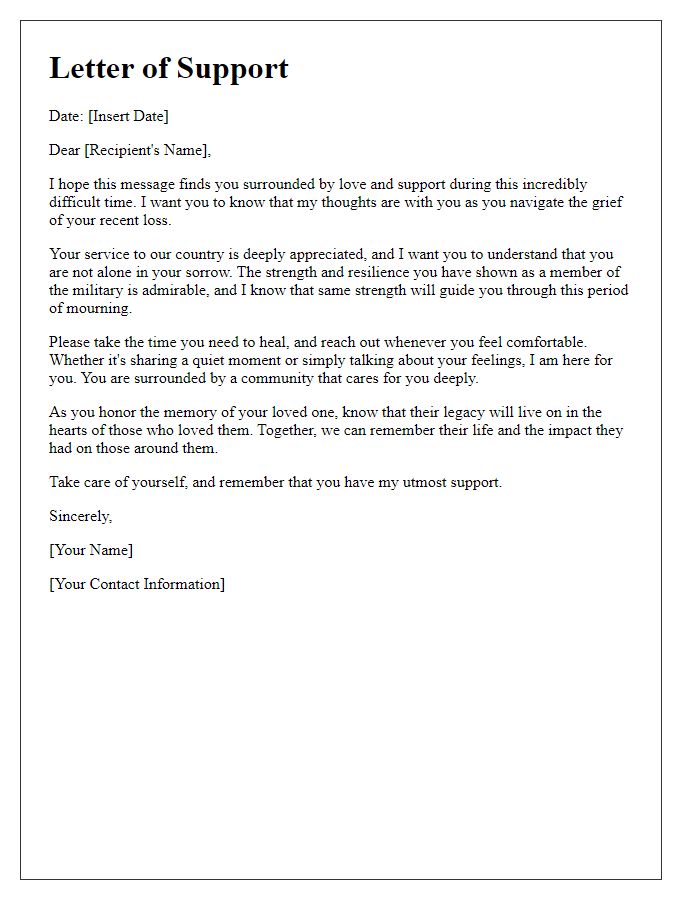
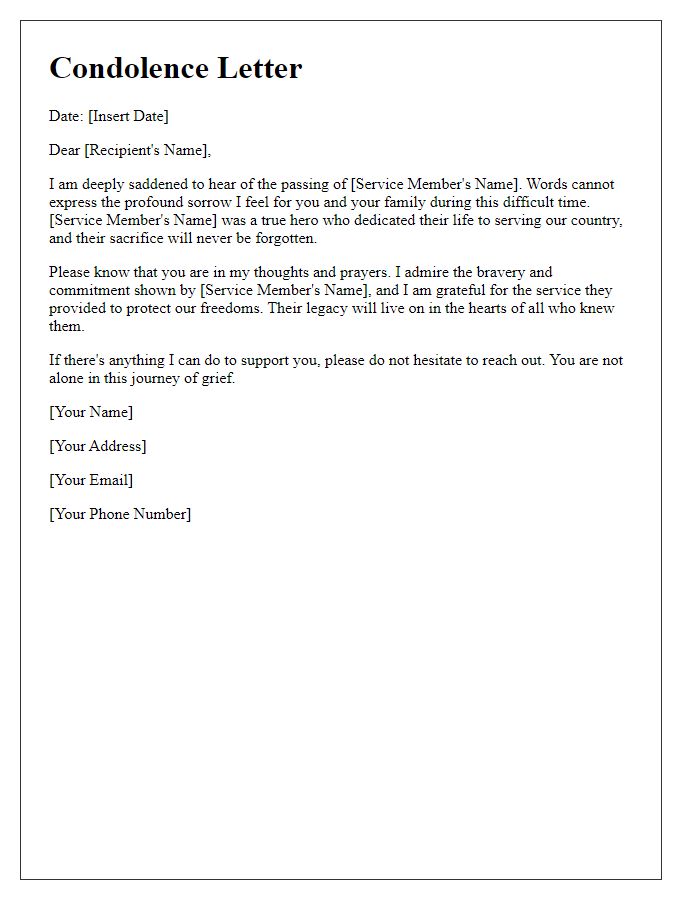


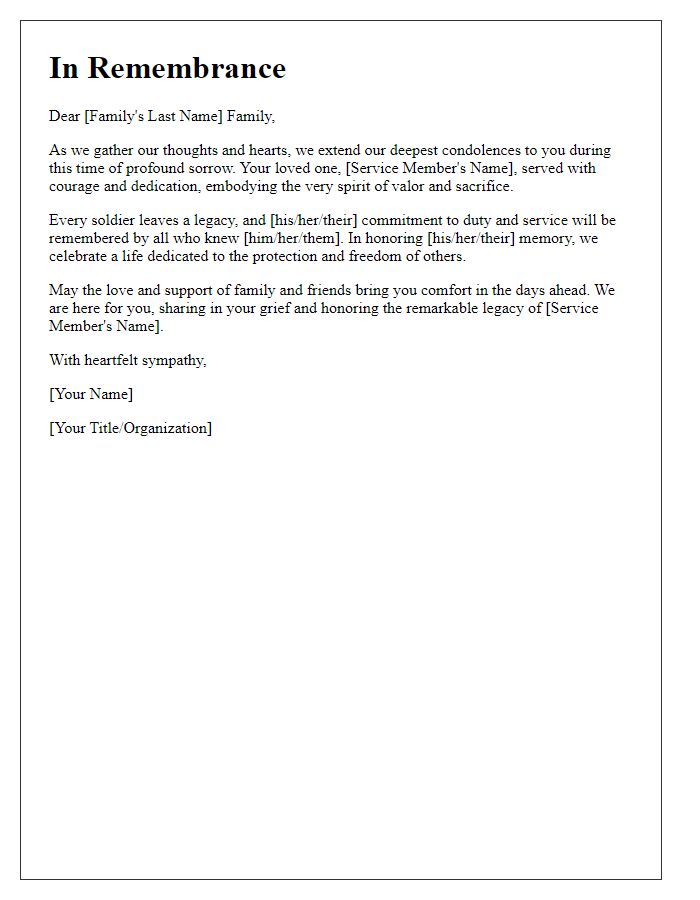
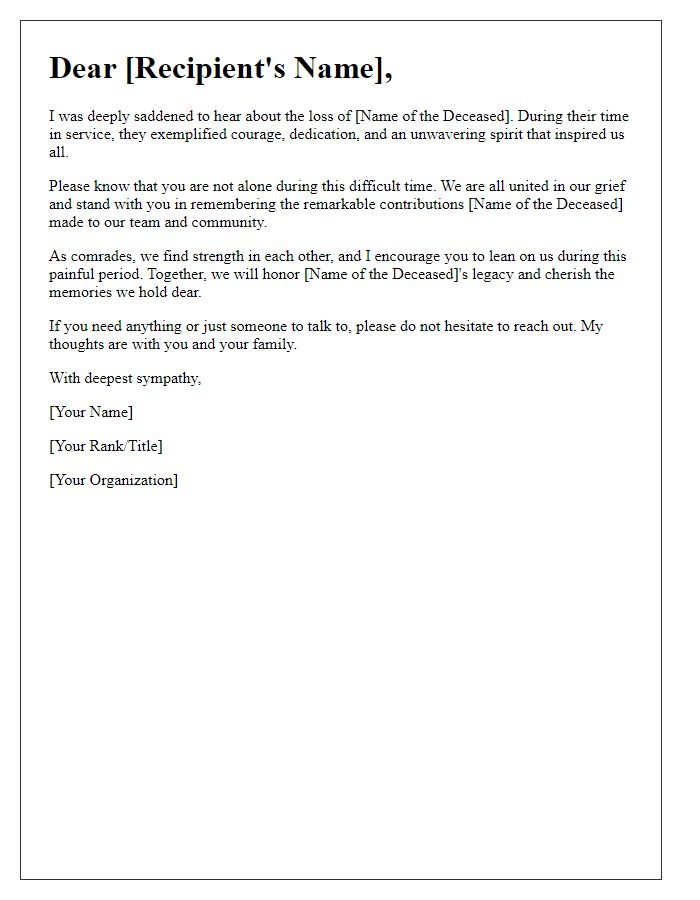
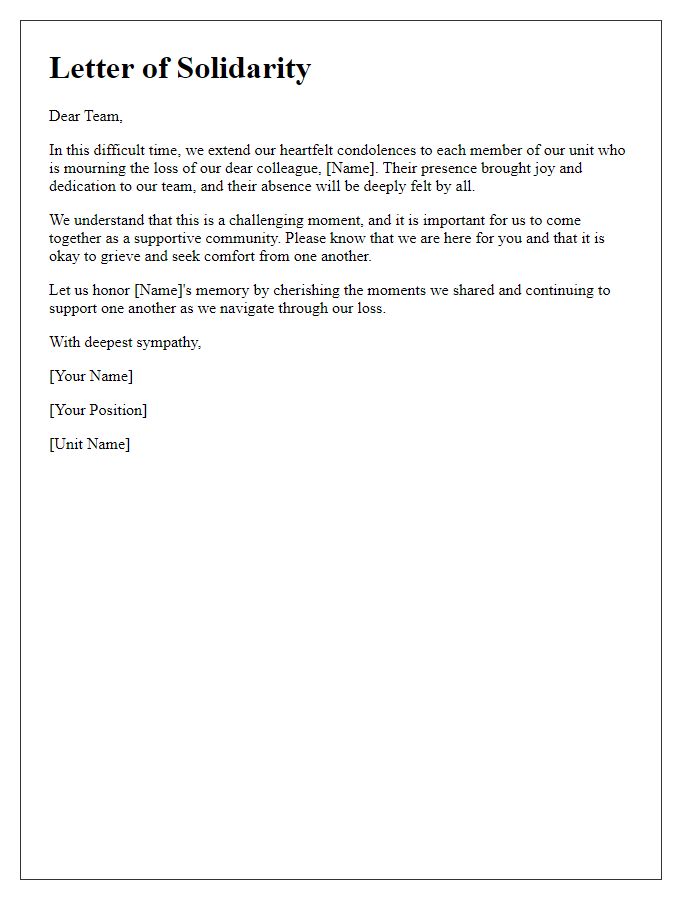
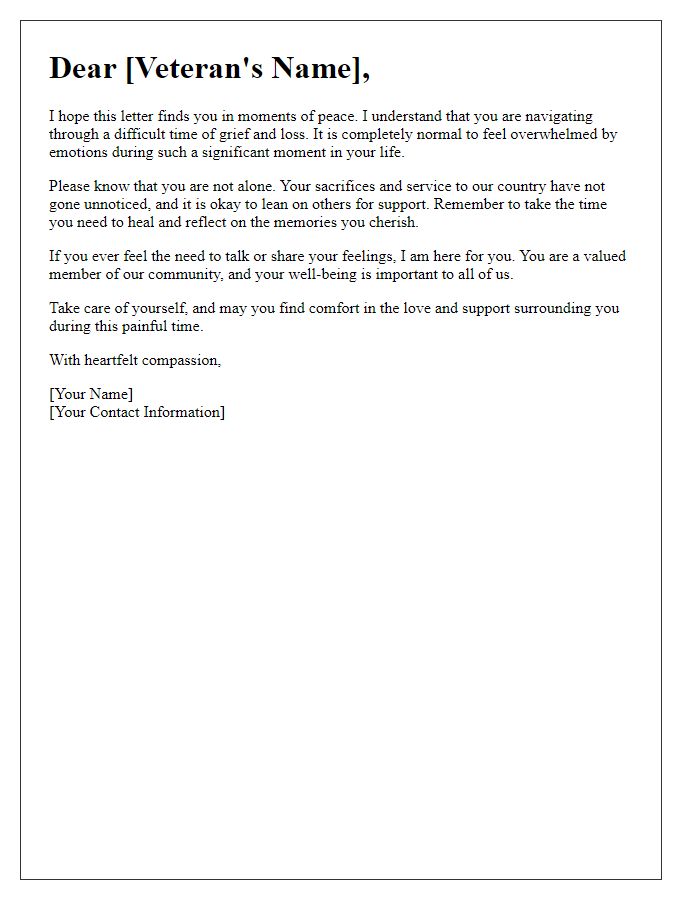


Comments